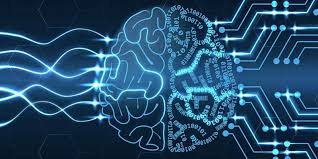
Breaking News
 FICO Stock Down More Than 10% This Week After FHFA Opens Door To VantageScore For Mortgages
FICO Stock Down More Than 10% This Week After FHFA Opens Door To VantageScore For Mortgages
 It's Time To End The 'Deep State' Fed
It's Time To End The 'Deep State' Fed
 Hamas Willing To Release 10 Hostages, But Israel Wants Total Disarmament
Hamas Willing To Release 10 Hostages, But Israel Wants Total Disarmament
 Deep Dive Into Android: How GrapheneOS Is Locked Out
Deep Dive Into Android: How GrapheneOS Is Locked Out
Top Tech News
 Insulator Becomes Conducting Semiconductor And Could Make Superelastic Silicone Solar Panels
Insulator Becomes Conducting Semiconductor And Could Make Superelastic Silicone Solar Panels
 Slate Truck's Under $20,000 Price Tag Just Became A Political Casualty
Slate Truck's Under $20,000 Price Tag Just Became A Political Casualty
 Wisdom Teeth Contain Unique Stem Cell That Can Form Cartilage, Neurons, and Heart Tissue
Wisdom Teeth Contain Unique Stem Cell That Can Form Cartilage, Neurons, and Heart Tissue
 Hay fever breakthrough: 'Molecular shield' blocks allergy trigger at the site
Hay fever breakthrough: 'Molecular shield' blocks allergy trigger at the site
 AI Getting Better at Medical Diagnosis
AI Getting Better at Medical Diagnosis
 Tesla Starting Integration of XAI Grok With Cars in Week or So
Tesla Starting Integration of XAI Grok With Cars in Week or So
 Bifacial Solar Panels: Everything You NEED to Know Before You Buy
Bifacial Solar Panels: Everything You NEED to Know Before You Buy
 INVASION of the TOXIC FOOD DYES:
INVASION of the TOXIC FOOD DYES:
 Let's Test a Mr Robot Attack on the New Thunderbird for Mobile
Let's Test a Mr Robot Attack on the New Thunderbird for Mobile
 Facial Recognition - Another Expanding Wolf in Sheep's Clothing Technology
Facial Recognition - Another Expanding Wolf in Sheep's Clothing Technology
What If AI Isn't Intelligence, But Anti-Intelligence?

There wasn't a single moment when this feeling of disconnection became obvious. There was no dramatic revelation or sudden epiphany. Just a gradually emerging tension in how people began to relate to, dare I say with, artificial intelligence (AI). The tools worked. Large language models produced fluent answers, summarized volumes of content, and offered surprisingly articulate responses that appealed to both my heart and head. But beneath the surface, something subtle and difficult to name began to take hold, at least to me. It was a quiet shift in how thinking felt.
The issue wasn't technical. The outputs were impressive—often conjuring a fleeting sense of accomplishment, even joy. Yet I began noticing a kind of cognitive displacement. The friction that once accompanied ideation, like the false starts, the second-guessing, and the productive discomfort all began to fade, if not vanish altogether. What was once an intellectual itch begging to be scratched is now gone.
The Slow Dissolving of Cognitive Boundaries
In its place, AI offered answers that were too clean, too fast, and eerily fluent. Curious as it may be, it felt as if my own mind had been pre-empted. This wasn't assistance; it was the slow dissolving of cognitive boundaries, and the results, while brilliant, were vapid in a way only perfection can be.
Now, this shift invites a deeper look into how these models function. Its power lies in predictive fluency and not understanding, but arranging ideas in some mysterious statistical construct. Its architecture—atemporal, and hyperdimensional—doesn't reflect how human minds actually work.
"Anti-intelligence"
And this is where a new idea begins to take shape. I began to wonder if we're not merely dealing with artificial intelligence, but with something structurally different that is not simply complementary with human cognition but antithetical. Something we might call "anti-intelligence."
It's important to understand that this isn't intended as some sort of rhetorical jab, but as a conceptual distinction. Anti-intelligence isn't ignorance, and it isn't malfunction. I'm beginning to think it's the inversion of intelligence as we know it. AI replicates the surface features such as language, fluency, and structure, but it bypasses the human substrate of thought. There's no intention, doubt, contradiction, or even meaning. It's not opposed to thinking; it makes thinking feel unnecessary.
This becomes a cultural and cognitive concern when anti-intelligence is deployed at scale. In education, students submit AI-generated essays that mimic competence but contain no trace of internal struggle. In journalism, AI systems can assemble entire articles without ever asking why something matters. In research, the line between synthesis and simulation blurs. It's not about replacing jobs—it's about replacing the human "cognitive vibe" with mechanistic performance.



